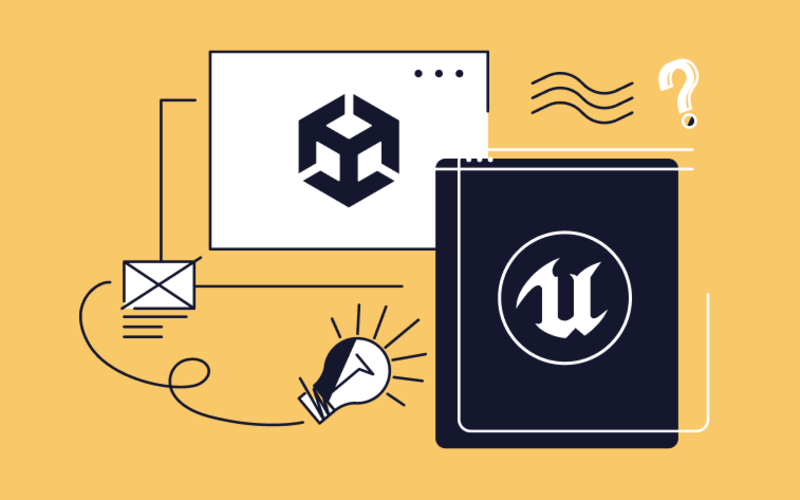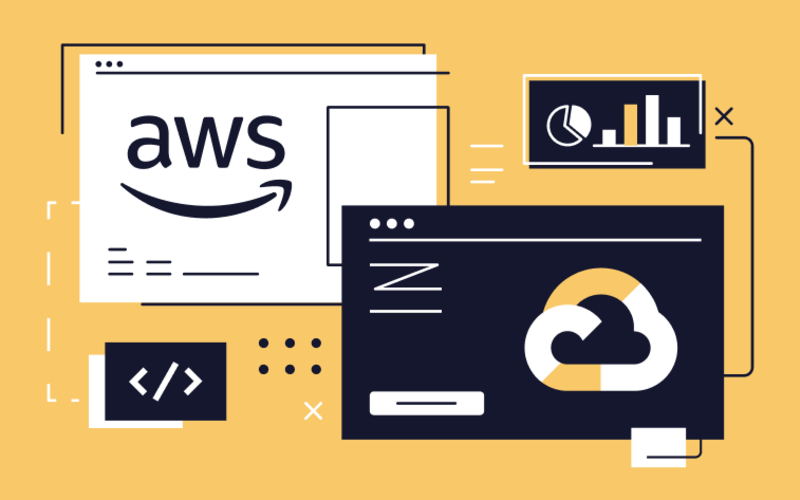NEW
Proxify is bringing transparency to tech team performance based on research conducted at Stanford. An industry first, built for engineering leaders.
Learn more
Software Engineering
App development
Dec 22, 2023 · 8 min read
Five suggestions for Android code test assignments
This article aims to provide you with some practical suggestions for your Android test code assignments. Here, we offer a set of thoughtfully curated suggestions designed not just to test the technical knowledge of Android developers but also to inspire creativity and innovation in their approach to problem-solving.
Peter Aleksander Bizjak
Mobile & Fullstack Web Developer & Cybersecurity Expert
Verified author

Table of Contents
- What to look for in an Android developer
- What should the candidate deliver?
- Five suggestions for Android code assignment tasks
- 1. eCommerce application
- 2. Real-time chat application
- 3. Fitness tracker/medical application
- 4. Application using maps and location services
- 5. File-sharing application
- Additional topics of conversation
- Accessibility and internationalization
- Security/Privacy compliance
- Integration with wearables/IoT Devices
- Machine Learning/AI Integration
- Summary
- Find a developer
These suggestions are crafted with the current trends and demands of the industry in mind, ensuring that the tasks and challenges posed are relevant and enriching.
What to look for in an Android developer
It’s not a surprise that an Android developer should be well-versed in the primary programming languages used for Android development, which are Kotlin and Java. It’s always important to look for a deep understanding of language-specific features, idiomatic usage, best practices, etc.
The candidate’s familiarity with Object-Oriented Programming (OOP) is crucial. This includes the basic principles of OOP and how these concepts are employed in real-world Android app development.
Adherence to clean code principles, particularly the SOLID principles, is another key marker of a competent developer. Their ability to implement these principles indicates a commitment to writing maintainable, scalable code. This aspect becomes particularly important when working in large teams or on long-term projects where code quality significantly impacts the application's lifecycle and maintenance.
This leads to the most critical area, which is understanding of the Android operating system, from architecture, system components, and how different Android versions can impact development and app behavior. Android is especially prone to breaking changes between different versions. Staying current with existing and upcoming changes is part of the job.
Familiarity with testing frameworks and practices is essential. Unit testing is great for validating smaller chunks of the codebase, while instrumentation tests ensure multiple app components work well together. Testing in Android projects should ideally be done simultaneously with development or beforehand in the case of test-driven development.
This ensures code reliability and reflects the developer's dedication to maintaining high standards of source code quality. Experience with automated testing and CI/CD pipelines is a significant advantage, showcasing their capability to integrate testing seamlessly into the development process.
Perhaps overkill for some, but providing a continuous integration server, for example, one provided by GitLab, would simulate an environment where a developer would test your app instead of running tests locally.
Lastly, practical experience deploying applications to the Google Play Store is a testament to a developer's comprehensive skill set. This includes understanding the nuances of preparing an app for release, navigating the Play Store's guidelines, and managing different release cycles. This is perhaps the most important non-technical skill.
Boost your team
Proxify developers are a powerful extension of your team, consistently delivering expert solutions. With a proven track record across 500+ industries, our specialists integrate seamlessly into your projects, helping you fast-track your roadmap and drive lasting success.
What should the candidate deliver?
When evaluating the deliverables of a candidate for an Android development role, the expectations extend beyond mere functional code. The candidate should comprehensively understand app architecture, testing paradigms, performance optimization, and modern Android-specific features.
Central to these deliverables is the incorporation of a recommended architecture. While Google advocates for the Model-View-ViewModel (MVVM) pattern for its clear separation of concerns and enhanced testability, it's important to note that other architectures like MVP/MVI can also be effective.
Candidates should demonstrate their proficiency in cleaning up resources efficiently, thus preventing memory leaks and ensuring smooth application performance. Reducing APK size is another aspect that must be considered, as it directly impacts the app's installability and user acceptance, especially in regions with limited bandwidth or storage space.
Integrating third-party libraries and APIs is common in Android development, offering extended functionality and streamlined development processes.
Lastly, implementing advanced, platform-specific features sets apart a proficient developer. This includes leveraging the latest Android capabilities, like background processing, push notifications, and custom views, or leveraging hardware features like sensors and cameras.
Five suggestions for Android code assignment tasks
When assigning code tests to potential Android developer candidates, it’s worth noting that many reputable companies often provide their backend systems. While open-source APIs exist, they reflect poorly on the organization when they hand out code assignments without doing any work themselves.
The projects listed below are designed to evaluate a broad spectrum of skills, from UI/UX design to advanced system integrations. These project ideas challenge the developer's technical capabilities and their ability to integrate with existing systems, a key skill in professional Android development.
1. eCommerce application
This project involves building a simple yet functional eCommerce application. Key aspects include implementing CRUD (Create, Read, Update, Delete) operations, user authentication, and an intuitive UI/UX design. The candidate should demonstrate their ability to handle user data securely and provide a seamless shopping experience. Additionally, implementing local persistence can test their skills in data management and offline capabilities, which are essential for a robust eCommerce platform.
2. Real-time chat application
This project tests the candidate's ability to handle real-time data, local persistence, and event-driven architecture by creating an app akin to popular messaging platforms like WhatsApp, Signal, or Telegram. Key skills include working with technologies like gRPC or GraphQL Subscriptions for real-time communication, integrating notifications, and managing background services for a seamless user experience. This project also evaluates the developer's ability to implement robust and secure communication channels.
3. Fitness tracker/medical application
This project revolves around developing an app that collects data from app sensors for fitness tracking or medical purposes. It requires skills in background processing and possibly deploying machine learning or AI models for data analysis and insights. The candidate's ability to handle sensitive health data responsibly and provide meaningful insights to users is key to this project.
4. Application using maps and location services
Building an application that utilizes maps and location data, possibly with geofencing, tests the candidate's expertise in handling location permissions, integrating mapping software like Google Maps or Mapbox, and providing real-time location-based services. This project idea can span various domains, from navigation apps to location-based reminders or tracking systems.
5. File-sharing application
Developing a file-sharing application requires candidates to demonstrate their ability to work with the Android file system, implement data transfer protocols like Bluetooth or NFC, and handle networking effectively. This project also involves local persistence and user interface design to create an intuitive and efficient file-sharing experience.
Additional topics of conversation
In addition to the core skills and project ideas, several other critical areas in Android development merit discussion. These topics enrich the conversation around app development and ensure that candidates are aware of and skilled in crucial aspects that define a well-rounded Android application.
Accessibility and internationalization
These are key to creating inclusive and global apps. Conversations should focus on implementing features that make apps usable for people with disabilities, such as screen readers or voice navigation. User interaction should be inclusive.
Internationalization involves preparing apps for users in different regions, accommodating multiple languages and cultural nuances. A developer skilled in these areas can significantly broaden an app’s reach and usability.
Security/Privacy compliance
With increasing data security and privacy concerns, discussing how to build secure Android applications is essential. This includes understanding Android's security model, implementing secure data storage and transmission, and adhering to privacy laws like GDPR. Developers should know best practices for keeping user data safe and ensuring the app complies with international security standards.
Integration with wearables/IoT Devices
The growing popularity of wearables and IoT devices opens up new avenues for Android development. Discussing how to extend applications seamlessly with wearables like smartwatches, fitness bands, or IoT devices in a smart home ecosystem can showcase a developer's ability to work with diverse technologies and platforms.
Machine Learning/AI Integration
Integrating ML/AI in mobile apps is a frontier in Android development. Conversations might include using machine learning models for features like image recognition, natural language processing, or predictive analytics. Developers adept at integrating these advanced technologies can create more intelligent, personalized user experiences.
Summary
In Android development, a comprehensive evaluation of a candidate extends beyond basic coding skills to encompass their mastery of Java or Kotlin, understanding of modern app architecture, and proficiency in object-oriented programming.
Key areas such as clean code principles, Android OS intricacies, and testing practices are pivotal in assessing a developer's capabilities. Furthermore, practical skills like app deployment to the Play Store, along with knowledge of advanced topics such as accessibility, security, wearables integration, and AI/ML applications, are indispensable.
The ideal Android developer is not just technically proficient but also adaptable, innovative, and knowledgeable about the latest trends and best practices in the ever-evolving landscape of Android technology.
Was this article helpful?
Find your next developer within days, not months
In a short 25-minute call, we would like to:
- Understand your development needs
- Explain our process to match you with qualified, vetted developers from our network
- You are presented the right candidates 2 days in average after we talk



